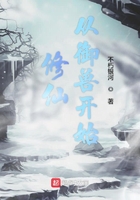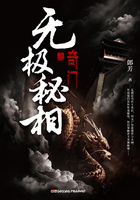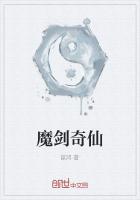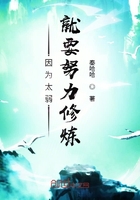I HAD NOW the key to all language, and I was eager to learn to use it. Children who hear acquire language without any particular effort; the words that fall from others' lips they catch on the wing, as it were, delightedly, while the little deaf child must trap them by a slow and often painful process. But whatever the process, the result is wonderful. Gradually from naming an object we advance step by step until we have traversed the vast distance between our first stammered syllable and the sweep of thought in a line of Shakespeare.
At first, when my teacher told me about a new thing I asked very few questions. My ideas were vague, and my vocabulary was inadequate; but as my knowledge of things grew, and I learned more and more words, my field of inquiry broadened, and I would return again and again to the same subject, eager for further information. Sometimes a new word revived an image that some earlier experience had engraved on my brain.
I remember the morning that I first asked the meaning of the word, “love. ” This was before I knew many words. I had found a few early violets in the garden and brought them to my teacher. She tried to kiss me; but at that time I did not like to have any one kiss me except my mother. Miss Sullivan put her arm gently round me and spelled into my hand, “I love Helen. ”
“What is love?”I asked.
She drew me closer to her and said, “It is here,” pointing to my heart, whose beats I was conscious of for the first time. Her words puzzled me very much because I did not then understand anything unless I touched it.
I smelt the violets in her hand and asked, half in words, half in signs, a question which meant, “Is love the sweetness of flowers?”
“No,” said my teacher.
Again I thought. The warm sun was shining on us.
“Is this not love?”I asked, pointing in the direction from which the heat came, “Is this not love?”
It seemed to me that there could be nothing more beautiful than the sun, whose warmth makes all things grow. But Miss Sullivan shook her head, and I was greatly puzzled and disappointed. I thought it strange that my teacher could not show me love.
A day or two afterward I was stringing beads of different sizes in symmetrical groups-two large beads, three small ones, and so on. I had made many mistakes, and Miss Sullivan had pointed them out again and again with gentle patience. Finally I noticed a very obvious error in the sequence and for an instant I concentrated my attention on the lesson and tried to think how I should have arranged the beads. Miss Sullivan touched my forehead and spelled with decided emphasis, “Think. ”
In a flash I knew that the word was the name of the process that was going on in my head. This was my first conscious perception of an abstract idea.
For a long time I was still-I was not thinking of the beads in my lap, but trying to find a meaning for “love” in the light of this new idea. The sun had been under a cloud all day, and there had been brief showers; but suddenly the sun broke forth in all its southern splendor.
Again I asked my teacher, “Is this not love?”
“Love is something like the clouds that were in the sky before the sun came out,” she replied. Then in simpler words than these, which at that time I could not have understood, she explained: “You cannot touch the clouds, you know; but you feel the rain and know how glad the flowers and the thirsty earth are to have it after a hot day. You cannot touch love either; but you feel the sweetness that it pours into everything. Without love you would not be happy or want to play. ”
The beautiful truth burst upon my mind-I felt that there were invisible lines stretched between my spirit and the spirits of others.
From the beginning of my education Miss Sullivan made it a practice to speak to me as she would speak to any hearing child; the only difference was that she spelled the sentences into my hand instead of speaking them. If I did not know the words and idioms necessary to express my thoughts she supplied them, even suggesting conversation when I was unable to keep up my end of the dialogue.
This process was continued for several years; for the deaf child does not learn in a month, or even in two or three years, the numberless idioms and expressions used in the simplest daily intercourse. The little hearing child learns these from constant repetition and imitation. The conversation he hears in his home stimulates his mind and suggests topics and calls forth the spontaneous expression of his own thoughts. This natural exchange of ideas is denied to the deaf child. My teacher, realizing this, determined to supply the kinds of stimuli I lacked. This she did by repeating to me as far as possible, verbatim, what she heard, and by showing me how I could take part in the conversation. But it was a long time before I ventured to take the initiative, and still longer before I could find something appropriate to say at the right time.
The deaf and the blind find it very difficult to acquire the amenities of conversation. How much more this difficulty must be augmented in the case of those who are both deaf and bind! They cannot distinguish the tone of the voice or, without assistance, go up and down the gamut of tones that give significance to words; nor can they watch the expression of the speaker's face, and a look is often the very soul of what one says.















